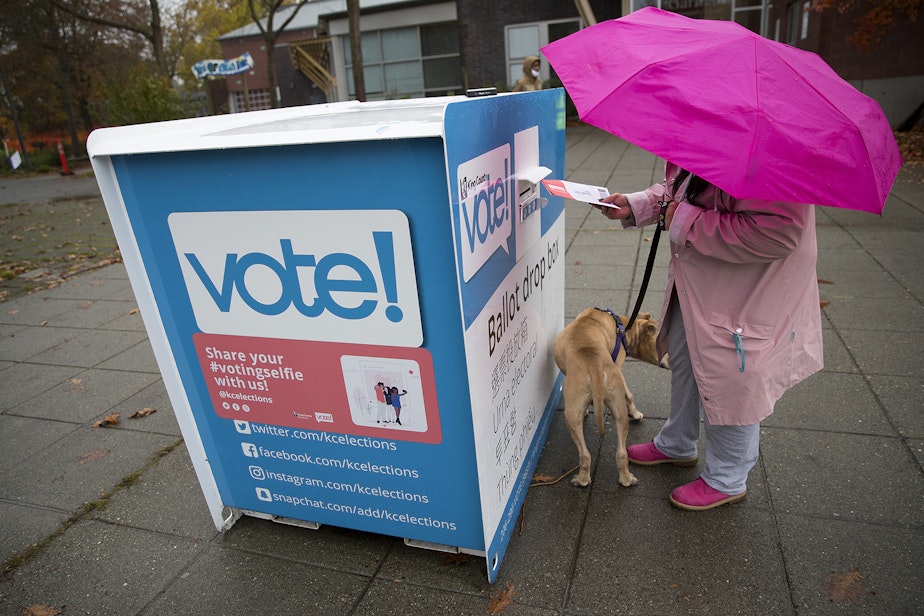WA recently expanded voting access for formerly incarcerated people. But barriers remain

Washington state now gives everyone convicted of a felony the right to vote as soon as they leave prison. But some challenges remain for people who were once incarcerated when it comes to casting their ballots.
Alyssa Knight can remember the first time she voted: It was a special election earlier this year and, as she recalls, the issues on the ballot were taxes and a school levy for building a new gym.
Never the less, she was excited to vote.
"It felt very important to get that ballot and see my name on this registered ballot," Knight said. "So it was a big moment."
Knight, who is a Seattle resident, was voting for the first time in her life. She had been released from prison in 2021 and was able to cast a ballot because of a new state law that gives people convicted of a felony the right to vote immediately after leaving prison.
Before this law, Washingtonians in Knight's situation couldn't cast a ballot until they completed their community supervision and paid off their court fees.
This new law came from House Bill 1078, which passed in 2021, but went into effect on the first day of 2022.
But even with this law, barriers to registering people are formerly incarcerated to vote still exist. In a special report she co-produced for Unincarcerated: The Podcast, Knight recently illuminated some of the challenges formerly incarcerated people face when setting out to vote.
For instance, when she entered prison, Knight was used to using flip phones and dial up internet, she said. But technology has advanced a lot since then, and internet access is critical to most people's everyday life, including for tasks like registering to vote, or researching candidates and issues.
"Think of all the information that you gather from the internet, all of the things that you need digital access and digital literacy to be able to not just access, but understand," Knight said.
Knight registered to vote as soon as she could this year. Now she's working with the organization Washington Voting Rights Restoration Coalition and Credible Messengers to try and register other people in her situation to vote.
Knight said she was motivated to do this work partially because she saw how much policy was affecting people who are incarcerated.
"I was realizing all these decisions are made, and nobody's actually asking me or any of the other people in the prison what it is that we want," Knight said.
Knight spoke with Soundside about these voting obstacles and what the right to vote means to her.





